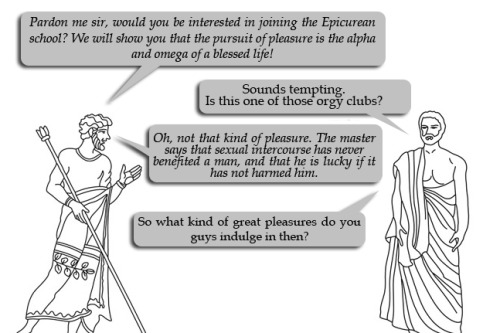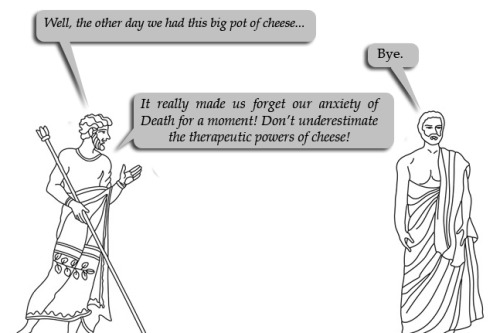#epicurean
“Send me a pot of cheese, so that I may have a feast when I care to.” - Epicurus in a letter to a follower
Post link
“Not what we have But what we enjoy, constitutes our abundance.”— Epicurus (341-270) Greek philosopher (via philosophicalconservatism)
Adjective
[ ep-i-kyoo-ree-uhn, -kyoor-ee- ]
1. fond of or adapted to luxury or indulgence in sensual pleasures; having luxurious tastes or habits, especially in eating and drinking.
Origin:
Epicurean “fond of or adapted to luxury or indulgence in sensual pleasures” derives via Middle English from Latin Epicūrēus “of Epicurus.” Epicurus (in the original Ancient Greek, Epíkouros) was a philosopher of Athenian origin who flourished in the late 4th and early 3rd centuries BC, and his school of thought, Epicureanism, had as its foundation the belief that pleasure was most important. The name Epicurus comes from the Ancient Greek adjective epíkouros “assisting,” which also functions as a noun meaning “ally, helper.” Epicurean was first recorded in English in the late 1300s.
“Sometimes I have thought it would be an excellent rule to live each day as if we should die tomorrow …. with a gentleness, a vigor, and a keenness of appreciation which are often lost when time stretches before us in the constant panorama of more days and months and years to come. There are those, of course, who would adopt the epicurean motto of ‘Eat, drink, and be merry,’ but most people would be chastened by the certainty of impending death.”
- HELEN KELLER, “THREE DAYS TO SEE,” THE ATLANTIC, JANUARY 1933


